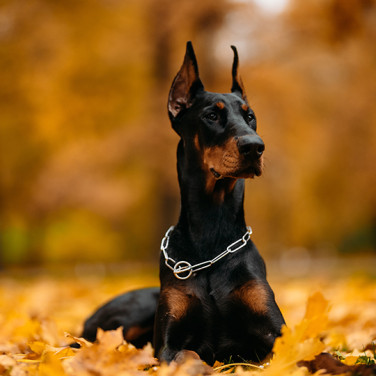FOOD
Can Dogs Eat Mulberries? Benefits and Risks of Mulberries for Dogs
페이지 정보
본문
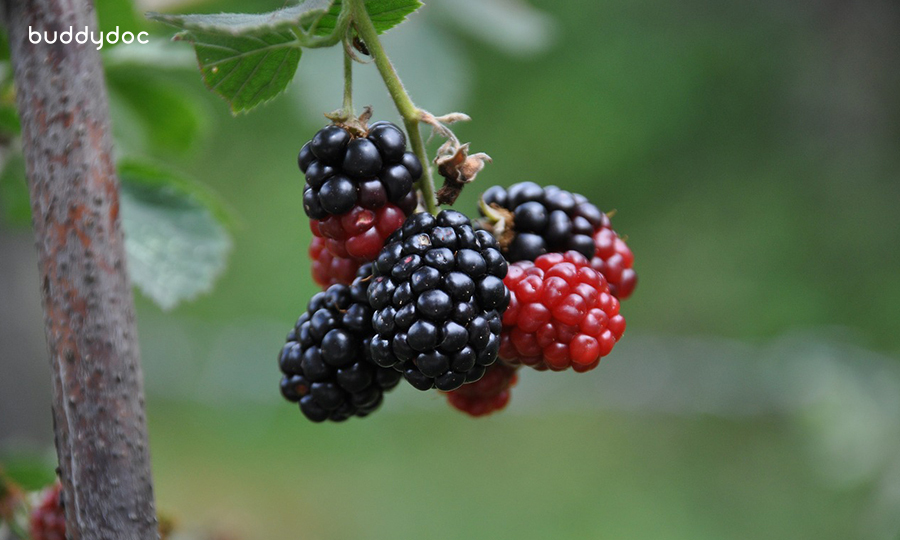
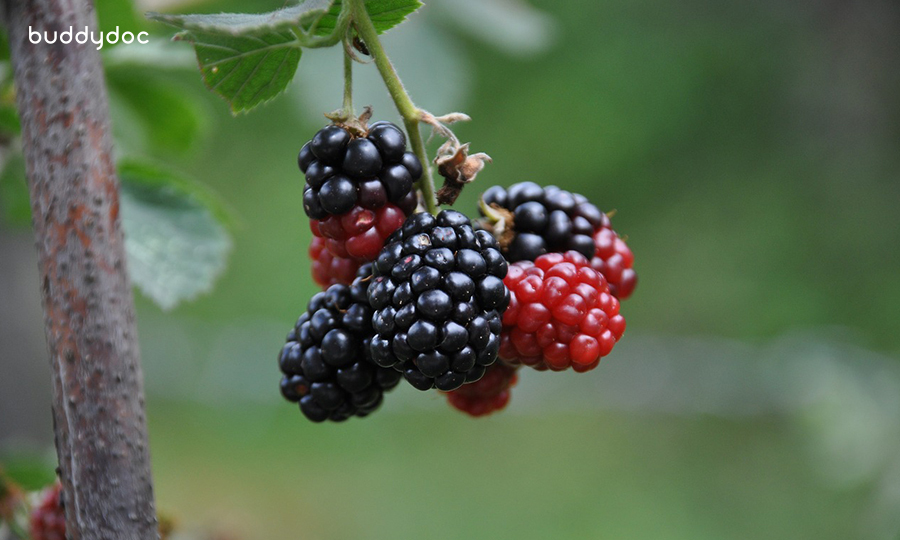
Can dogs eat mulberries? YES!
Mulberries are safe for dogs to eat in small quantities. They are non-toxic and can even offer nutritional benefits. Rich in anthocyanin, mulberries support eye health and provide fiber and minerals to boost the immune system. However, be cautious of unripe berries, as they may cause digestive issues and hallucinations. Excessive consumption can lead to digestive problems due to high sugar content. Only give ripe mulberries occasionally and consult a veterinarian before introducing human food to your dog's diet. Remember, the majority of a dog's calories should come from dedicated dog food. Avoid confusing mulberries with toxic berries like juniper and mistletoe.
Nutritional facts of mulberries for dogs
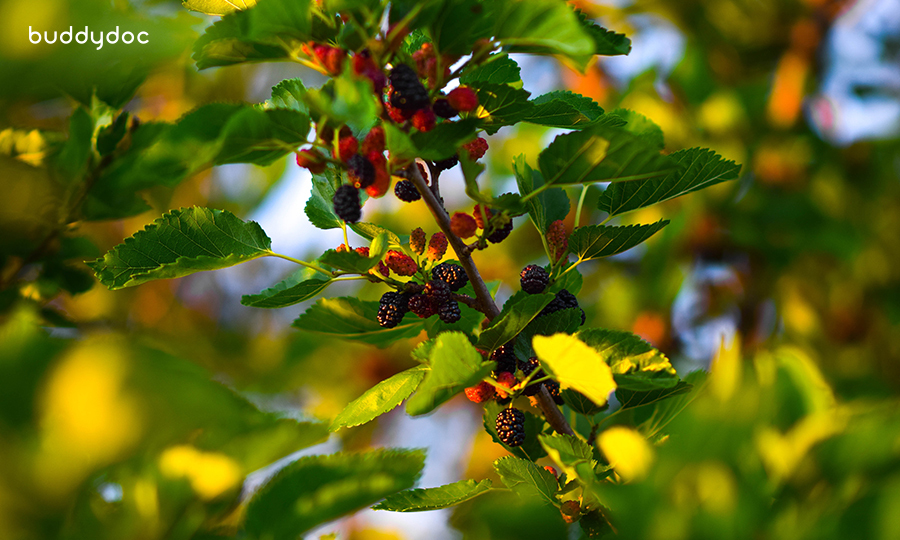
Mulberries are a superfruit for dogs, packed with nutrients like resveratrol, fiber, iron, vitamins, and anthocyanins. They offer numerous health benefits, including improved digestion, intestinal health, cancer cell inhibition, brain cell restoration, and enhanced cognitive function. With over 80% water content, mulberries also contain protein, fiber, fat, minerals, and antioxidants. However, remember that your dog already receives these nutrients from a balanced diet, so mulberries are not necessary.
Main nutritional benefits of mulberries for dogs
Here are some of the key health benefits mulberries can provide for your dog:
-
Fiber
The fiber content in mulberries helps regulate a dog’s digestive system, easing symptoms such as diarrhea and constipation in moderation.
-
Vitamin C
Mulberries contain vitamin C which helps boost your dog’s immune system.
-
Anthocyanin
Anthocyanin helps build immunity while preventing tumor growth in your dog’s body.
-
Resveratrol
Resveratrol, a powerful antioxidant, can help fight infection, boost the immune system, lower cholesterol, and more in dogs.
-
Iron
Iron in mulberries helps with the production of red blood cells, which help transport oxygen throughout the body. This helps to improve cardiovascular health, reduce muscle fatigue, and lower the chance of getting sick due to poor blood circulation.
-
Calcium
Calcium in mulberries helps to build strong bones in dogs and accelerate their recovery period.
How to safely serve mulberries to your dog
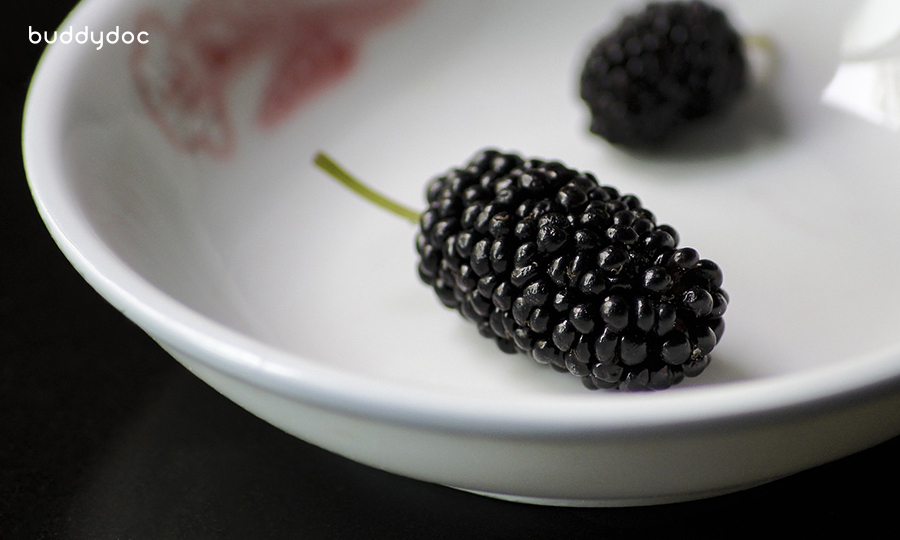
Feeding mulberries to your pup requires some basic steps. First, ensure they are ripe to avoid potential issues like stomach upset and hallucinations. Second, wash these berries thoroughly before serving to remove any external parasites and pesticides on the berry. Serve the mulberries raw, and start with only a berry to test for any food sensitivity. Moderation is key with this fruit as the fiber content can cause digestive symptoms in overconsumption. Lastly, it is generally recommended to feed no more than 10% of your dog’s daily recommended caloric intake with any types of snacks and treats.
How many mulberries can I feed my dog?
Depending on the size of your dog, the most amount fed should only be a few mulberries every couple of days. For smaller dogs, you may want to feed a single mulberry as an occasional treat. It is important to ensure that there is no adverse reaction to feeding a small amount before adding mulberries to your dog’s snack rotation.
Cautions to consider when feeding mulberries to dogs
While mulberries are not toxic or poisonous to dogs, it is important to keep in mind that there are also risks to feeding mulberries to dogs.
Can dogs eat unripe mulberries?
When it comes to feeding your furry friend mulberries, caution is essential. Unripe mulberries can be hallucinogenic for both humans and canines. Therefore, it's crucial to only offer fully ripened berries to your dog. Keep a close eye on your dog near mulberry trees. While mulberry leaves are safe for dogs in small quantities, consuming unripe berries can lead to digestive issues like diarrhea and upset stomach, as well as potential hallucinations. Ripe mulberries are the way to go, as unripe ones have a higher chance of causing an upset stomach and hallucinations for your pup.
Stained fur
Mulberry juice stains fur, clothing, and furniture fairly easily. It is good to be aware of this at home as well as prevent them from getting close to a mulberry tree on walks outside.
Can dogs eat dried mulberries?
Dried mulberries, often high in sugar and additives, can be unhealthy for dogs, causing stomach upset. However, if free from additives, they are safe, containing less water than fresh mulberries. Not recommended for dogs with obesity or high cholesterol. Beware of juice stains. Although not toxic, dried mulberries lack water content, concentrating sugar and calories. High sugar and calories can lead to diabetes, obesity, heart disease, and pancreatitis in dogs.
Can dogs eat mulberry leaves?
Dogs can eat Mulberry leaves without toxicity concerns. Ingesting small amounts is generally safe, but excessive consumption may lead to indigestion issues like diarrhea. The entire mulberry plant is non-toxic for dogs, according to ASPCA. However, if your dog experiences prolonged symptoms or discomfort, consult a vet. It's advisable to avoid intentionally feeding mulberry leaves to your dog to minimize the risk of an upset stomach.
Beware of food allergies
Although mulberry allergies are rare, if your dog has an allergic reaction to mulberry pollen, they may also be sensitive to the fruit. When introducing new food to your puppy, it is recommended to test for any potential allergies by giving a small portion and monitoring for allergic reactions. If your puppy displays any symptoms of intolerance, it is important to stop feeding and consult a veterinarian immediately.
Signs of an allergic reaction to look out for:
- Skin problems: hives, facial swelling, itchiness
- Digestive problems: vomiting and diarrhea
- Shortness of breath
Curious if you can give your dog other foods besides mulberries?
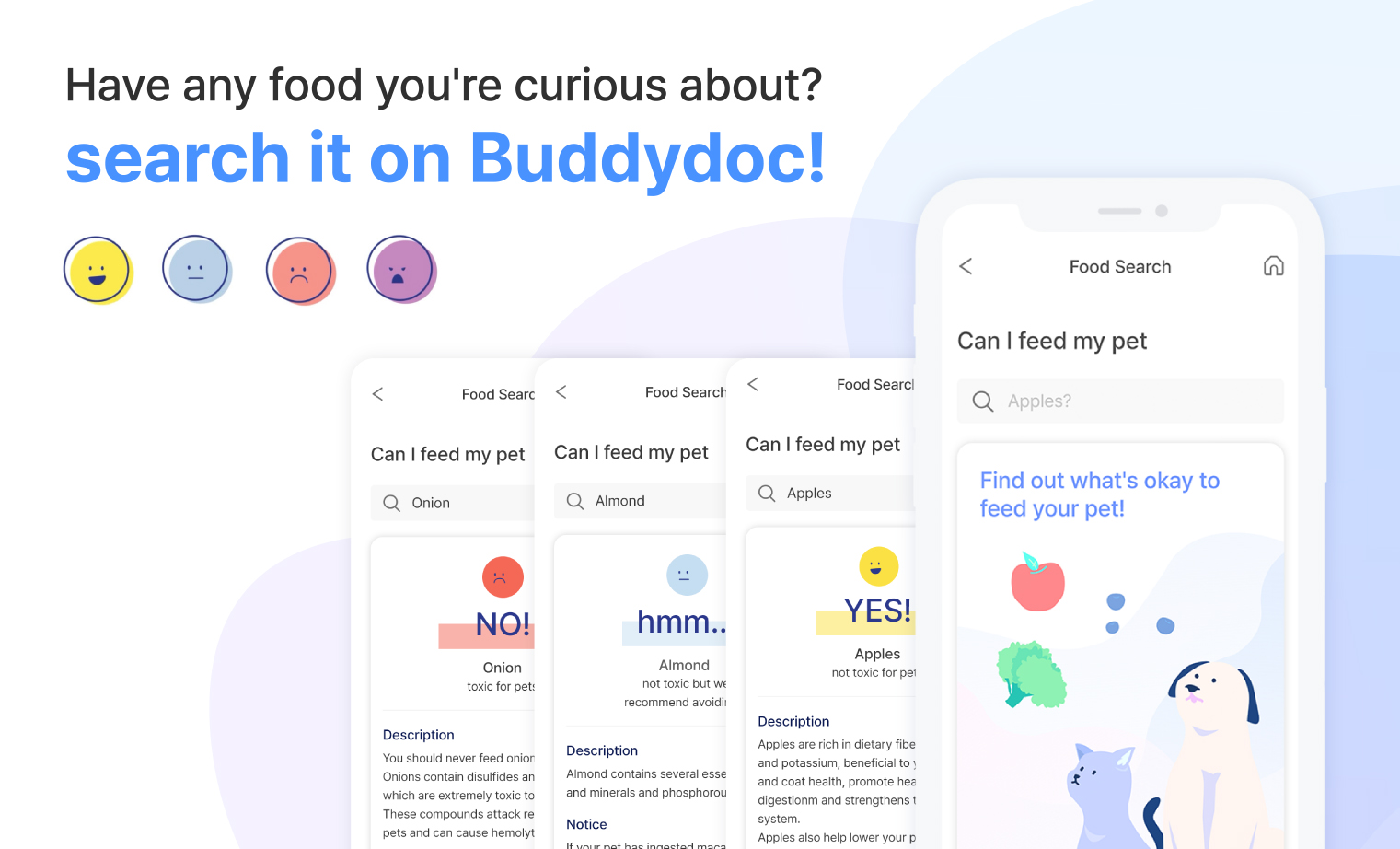
Does your dog also look up at you with those puppy dog eyes whenever you are snacking on something? You know foods like chocolates should not be shared with them but do you search the Internet every time if it’s okay to share a bite of whatever you are eating? The Buddydoc Food Dictionary provides information on hundreds of foods that we consume and informs you whether it is safe for them to consume and the nutritional benefits for your pet. If you're curious about other foods, try searching on Buddydoc!





